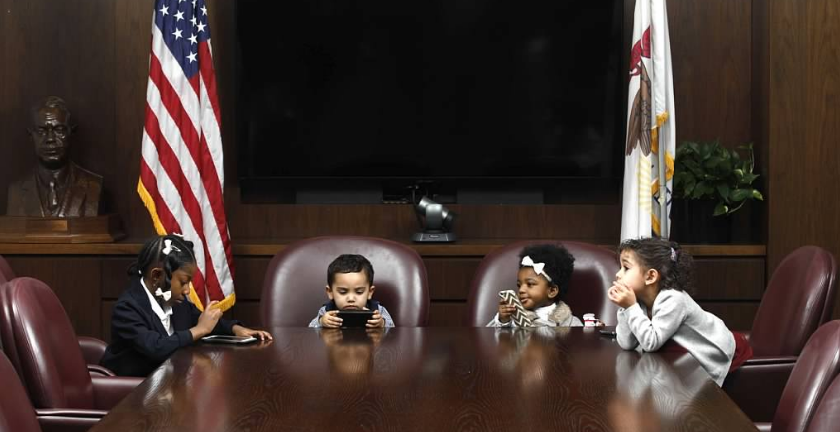Strengthening Community Relationships
The Southwest Organizing Project (SWOP), which currently has 45 member institutions, including local Catholic parishes, schools, and a hospital, strives to enable families on the Southwest Side of Chicago to improve life in their neighborhoods by building relationships across racial, generational, and faith differences, finding common community concerns, and acting collectively on solutions.
“There’s an increased recognition that you can’t win by focusing on one community issue alone. It requires the interconnection between all the different aspects of the work. Rather than pointing to great work in schools, continuing to acquire and rehab homes, and working to reduce violence, what’s most striking to me is how they happen in relation to each other,” said Jeff Bartow, Director of the Southwest Organizing Project.
Through collaborative efforts by SWOP and its partners, the Reclaiming Southwest Chicago campaign has been working to repair the physical and social damage caused by the foreclosure crisis that led to over 700 foreclosed properties buildings in the neighborhood. Since the campaign began in 2013, the number of vacant homes has been reduced from 93 to eight in its target area.
“The low number of vacancies sounds really great, but I think it's more than that. It's everything that is invisible, like feeling safe when I leave bible study at 9:30 PM, attending late night festivals around the neighborhood, and people walking their dogs after dark. It’s part of the reclaiming,” said Imelda Salazar, Community Organizer at SWOP. “Reclaiming Southwest has transformed my life and the lives of so many. It started as a housing campaign because of the foreclosures, but it became more than that. It became a reason to build relationships with everybody and when I say everybody, I mean priests, teachers, students, and stakeholders. I think the impact of those relationships was greater than we expected.“The impact on people who are making a difference on the ground in our communities is huge and it surpasses any one particular achievement. It’s more than the experience of seeing a family moving into a newly rehabbed home, it affects the whole of who that person is and the sense of relationships that emerge from the actions people take as part of the organization,” said Jeff.
Imelda Salazar: Personally, the most difficult [part of the pandemic shutting the city down] is not being able to see people and not having face-to-face interaction. But as a community, I think one of the challenges has been access. Access to everything. Access to healthcare, access to testing, access to technology for remote learning.
SWOP’s community organizers have dedicated themselves to building relationships and strengthening bonds across the community. Those same strong relationships contributed to how the community came together to clean up the neighborhood following the racial justice protests that took place after the murder of George Floyd in late May.
“A pastor at my church a block away from the SWOP office called on the neighborhood to help clean up,” said Imelda. “I’m proud of the families SWOP has organized and the achievement of cleaning up the community together. We’re living in a difficult time, but it’s one that requires us to be together, think together, and march together.”
“The impact of Reclaiming Southwest shows us that it's a really good pilot program for other communities to initiate. It really can work in the city, but everyone needs to come together. Every institution needs to be involved in a way that is uniform,” added Imelda. “It wasn’t an easy start. We wondered, "What are we going to do? We don't want our neighborhood to look like a ghost town." And we knew nobody would come and save the neighborhood but us. The campaign began that way and it became something way bigger than that”.






Comments
Post a Comment